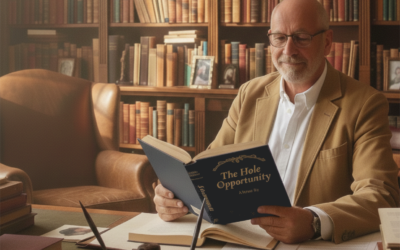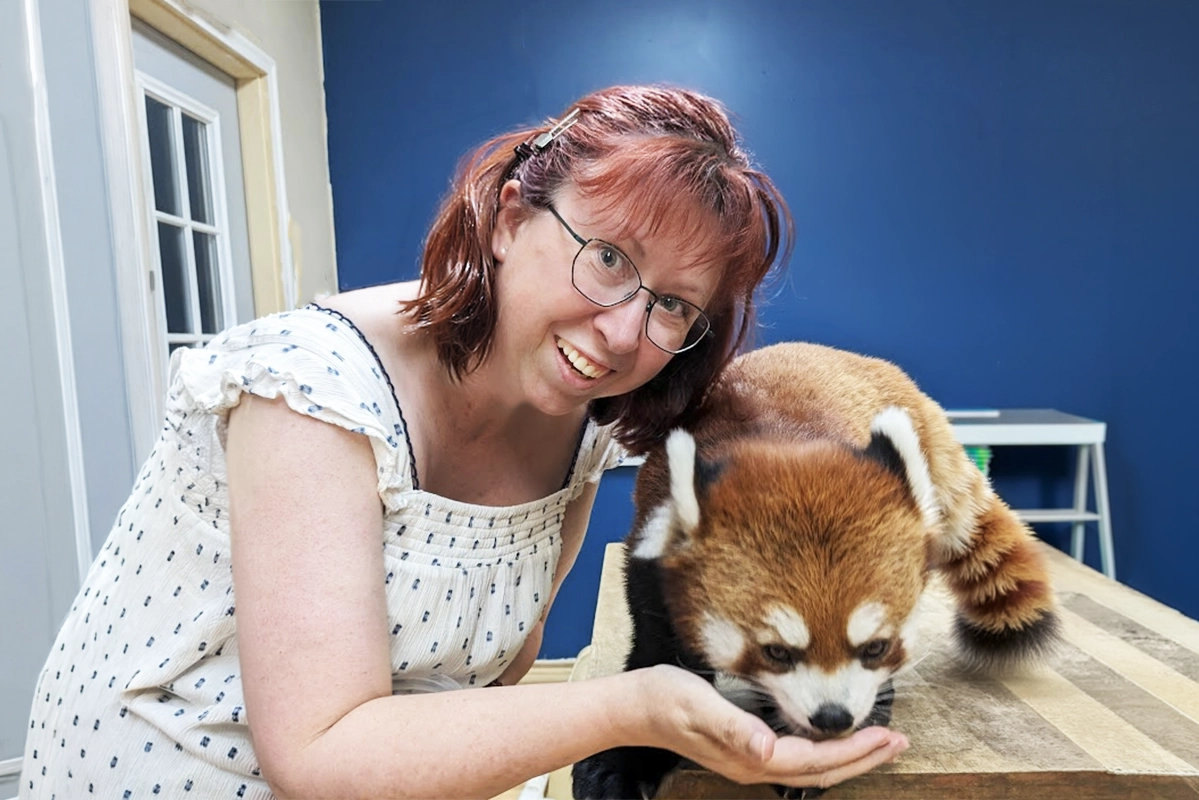Caroline Lawrence Brings the Ancient World to Life Through Unforgettable Adventures

PHOTO: Caroline Lawrence, acclaimed author of The Roman Mysteries. Photo Credit: Ed Miller, taken at London Mithraeum | Bloomberg SPACE
A Celebrated Children’s Author Who Turns Classical History Into Riveting Mysteries For Young Readers
Caroline Lawrence, award-winning author of over 40 children’s books, masterfully combines her love of Classics with detective storytelling to inspire young minds through vivid, historically rich narratives.
Caroline Lawrence has gifted generations of young readers with thrilling adventures steeped in the rich tapestry of the ancient world. A masterful storyteller with a scholar’s insight, Lawrence blends meticulous research with page-turning plots that ignite a lifelong passion for history in her readers. At Mosaic Digest, we are delighted to spotlight a literary voice whose dedication to the Classics has reshaped children’s historical fiction.
Best known for her beloved Roman Mysteries series, Lawrence’s ability to animate the past with relatable characters and cinematic storytelling has earned her acclaim across the globe. From the streets of ancient Rome to the dusty trails of the American West, her tales transcend time, capturing the imagination with humour, heart, and historical depth. In this exclusive interview with Mosaic Digest, Caroline Lawrence reflects on her inspirations, process, and the enduring magic of storytelling that brings history to life for the next generation.
Lawrence’s captivating stories awaken a passion for history while entertaining and educating young readers with thrilling plots and unforgettable characters.
Your Roman Mysteries series has captivated readers around the world. What first sparked your fascination with ancient Rome, and how did that passion evolve into a bestselling children’s series?
As a child I loved the Greek myths and also mystery stories like Nancy Drew and Sherlock Holmes. On my gap year, aged 18, I read The Last of the Wine, a historical novel by Mary Renault set in ancient Greece. The same week I read Homer’s Iliad in E.V. Rieu’s translation. Those two books inspired me to sign up for ancient Greek at university and I fell in love with the language and then with Latin and then with Greek and Roman art. My passion for Classics took me to Cambridge University on a scholarship and I ended up staying in England where I became a primary school teacher. I loved being a teacher but found it exhausting. I’d always dreamed of being a writer and thought I should try before I got too old. I was working on a screenplay about an enslaved girl in Pompeii when my sister Jennifer suggested I write a book for kids set in ancient Rome. That was my lightbulb moment. I could combine two of my passions, detective stories and the ancient world. That’s how I came up with the idea of Flavia Gemina, a Roman version of Nancy Drew who solves mysteries with three different friends.
“I could combine two of my passions, detective stories and the ancient world.” – Caroline Lawrence
You’ve brought ancient settings vividly to life for young readers. How do you balance meticulous historical research with crafting an engaging and accessible narrative?
I love researching the ancient world, not just by reading primary and secondary sources but by poring over artefacts at museum, attending re-enactment events and travelling. I use my research to describe the world: the smells, sights, tastes, feel and mindset. Then I use Hollywood screenwriting techniques to write the plots, as kids need fast-moving and engaging stories.
Flavia Gemina has become an iconic character in historical fiction for children. How did you develop her voice, and what do you think makes her resonate so strongly with readers?
I like characters who aren’t perfect because they’re more interesting. Flavia is based on me: a bossy, impulsive know-it-all, but with a good heart. Her three friends are very different. Nubia, a beautiful enslaved girl from North Africa, is gentle, intuitive and animal-loving. Jonathan is drily funny and pessimistic, but reliable. Lupus is a half-wild, mute beggar boy who is good following culprits in disguise. By creating such varied main characters, I hoped kids would identify with at least one of them.
After exploring ancient Rome, you turned to the American Wild West with the P.K. Pinkerton Mysteries. What inspired that dramatic shift in setting, and what challenges or surprises came with it?
I took a brief break from the ancient world to write books set in Nevada in the 1860s, because one of my other favourite genres is the Western. The P.K. Pinkerton Mysteries are also detective stories for kids with a quirky main character. I loved writing the P.K. Pinkerton Mysteries because my research involved immersing myself in the letters and early essays of Mark Twain and other sagebrush authors. And also visiting Virginia City which is like a time capsule for the Wild West. But I was happy to get back to the ancient world.
The BBC adaptation of The Roman Mysteries brought your characters to life on screen. What was it like seeing your stories interpreted for television, and did the experience influence your writing in any way?
Visiting season one’s set of the Roman Mysteries in Tunisia and season two’s set in Bulgaria was fabulous. It was thrilling to see so many talented actors and filmmakers recreate a world I had dreamt up in my imagination.
Looking back at your literary journey—from Classics student to award-winning author—what moment or achievement has meant the most to you, and why?
It’s not one big moment but all the ‘smaller’ moments when someone says my books got them interested in the Ancient Graeco-Roman world. My original desire was to be an “evangelist for the Classics” (like Mary Renault who sparked my lifelong love of the subject and changed my life!) My current passion is Virgil’s Aeneid and my mission at the moment is to get people excited about that amazing epic poem. I am writing a series of short myth retellings for teens called Tales from Virgil’s Aeneid. For the latest one, I have re-imagined the faithful friend of the Trojan hero Aeneas as a dog!













